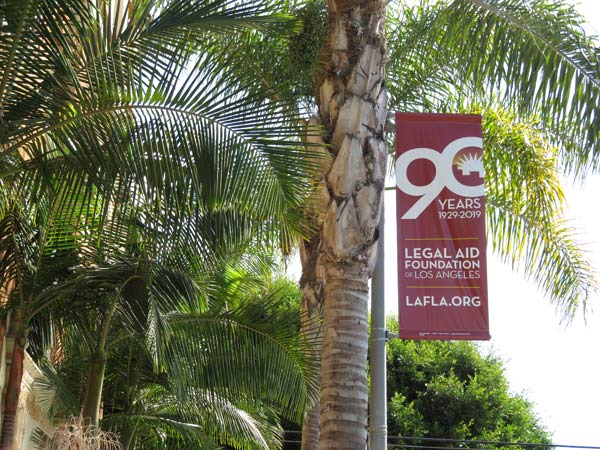SANTA MONICA, Jan. 31, 2017 — In a major victory for tenants, a court on Monday upheld a Santa Monica ordinance that bans discrimination against Section 8 voucher holders.
The anti-discrimination ordinance was passed in May 2015 after the city received multiple complaints from prospective tenants that landlords were refusing to accept their housing vouchers. This ordinance is especially important to protect low-income tenants in Santa Monica, given the high cost of housing and the difficulty many low-income tenants and voucher holders have in finding affordable apartments.
“The City appreciates the housing providers who already participate in the Section 8 program,” said Gary Rhoades, Deputy City Attorney with the Santa Monica City Attorney’s Office. “Now that the court has validated this much-needed affordable housing measure, our office plans to immediately schedule meetings with those owners who have hesitated to accept Section 8 vouchers and may already be in violation of the law.”
The ruling stems from a lawsuit filed in June 2015 against the City of Santa Monica by the Apartment Association of Greater Los Angeles and several individuals. AAGLA argued that the California Fair Employment and Housing Act made the ordinance invalid. The ruling by Los Angeles Superior Court Judge Lisa H. Cole dismisses the lawsuit and allows the city to proceed with the ordinance.
This case could have far-reaching effects throughout the state, and may prompt other local governments to pass similar ordinances. Marin County and the cities of San Francisco, Corte Madera, East Palo Alto and Woodland have all passed ordinances prohibiting discrimination based on source of income. Landlords in San Francisco have sued to stop the ordinance there.
Legal Aid Foundation of Los Angeles and Western Center on Law and Poverty intervened in the case on behalf of two voucher holders. Sonjia Sheffield is a longtime Santa Monica resident who had tried to find a larger apartment within the city, but was told by approximately 50 landlords that they do not accept vouchers. Stephanie Keys, a mother of three, had searched for an apartment in Santa Monica unsuccessfully for about two years. During her search, several landlords told her that they do not accept Section 8 vouchers. Western Center additionally represented a tenants’ rights organization, Tenants Together.
Leah Simon-Weisberg, Legal Director for Tenants Together, hailed the victory: “California’s severe affordable housing crisis means that we need to use every tool available to ensure people can find a place to live. Judge Cole’s decision provides a glimmer of hope for some of the individuals most in need of those tools.”
“The escalating rents in Santa Monica, combined with Section 8 discrimination, have made it incredibly difficult for our clients holding Section 8 vouchers to find apartments where they can use their vouchers. Long-term rent-controlled residents, typically seniors, who obtained vouchers after years on waitlists, have been unable to get their landlords to accept them because landlords secretly hoped their tenants would vacate, enabling landlords to raise the rent to market,” said Senior Attorney Denise McGranahan of Legal Aid Foundation of Los Angeles.
“Housing vouchers can mean the difference between homelessness and safe, stable housing,” said Senior Attorney Navneet Grewal of Western Center on Law and Poverty. “We hope that other cities with similar affordable housing shortages will consider passing ordinances like Santa Monica’s so that this valuable federal resource can be put to good use.”
There are 1,097 tenants in the City of Santa Monica who use Section 8 vouchers to pay for their apartments, according to the city.



